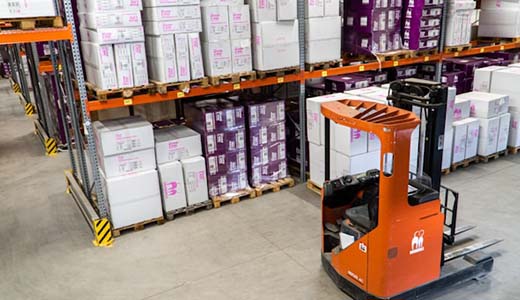What is inventory warehouse management software?
Inventory warehouse management software is a tool that helps businesses manage and control their inventory levels, track stock movements, and optimize warehouse operations. It enables users to monitor product quantities, automate reordering processes, and streamline the picking and shipping of goods. Features often include real-time inventory tracking, reporting and analytics, barcoding, and integration with other business systems like ERP and e-commerce platforms. By improving accuracy and efficiency, this software enhances overall supply chain management and reduces operational costs.
Applications of inventory warehouse management software?
Inventory warehouse management software streamlines operations by automating inventory tracking, optimizing storage space, and managing order fulfillment. It enables real-time data access for better decision-making, minimizes stockouts and overstock situations, and improves accuracy in inventory counts. Additionally, it facilitates efficient reporting, enhances supply chain visibility, and integrates with other business systems like ERP and CRM. Overall, it boosts productivity, reduces operational costs, and improves customer satisfaction through timely deliveries.
Different types of inventory warehouse management software?
Inventory warehouse management software comes in various types, including:
- Standalone Systems: Basic inventory tracking functionalities.
- Integrated Systems: Combine inventory management with other business processes like ERP and CRM.
- Cloud-Based Solutions: Offer real-time data access and remote management.
- Mobile Apps: Enable inventory management via smartphones for on-the-go tracking.
- Barcode/RFID Systems: Utilize scanning technology for efficient tracking and stocktaking.
- Automated Solutions: Use robotics and AI for inventory replenishment and management.
Selecting the right type depends on specific business needs and scale.
Technology used for inventory warehouse management software?
Inventory warehouse management software typically utilizes a combination of technologies including barcode scanning, RFID, cloud computing, and mobile applications. It often incorporates databases for real-time data storage and retrieval, artificial intelligence for predictive analytics, and integration with ERP systems for streamlined operations. Additionally, it may leverage IoT devices for monitoring inventory conditions and automation technologies like robots for picking and sorting. This combination enhances accuracy, efficiency, and visibility in inventory management.






